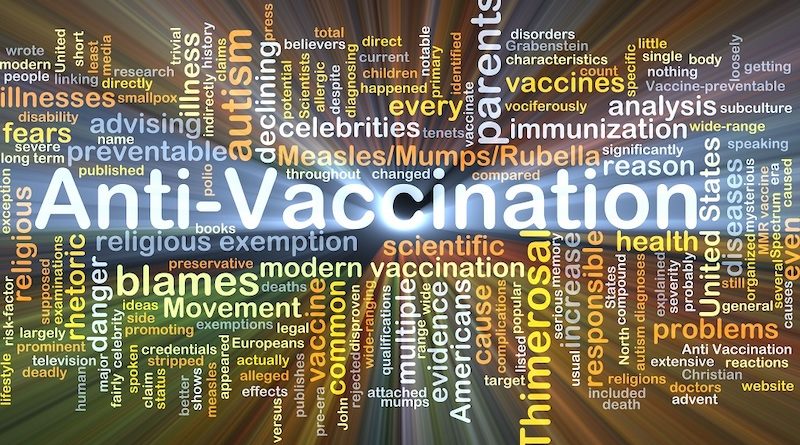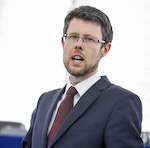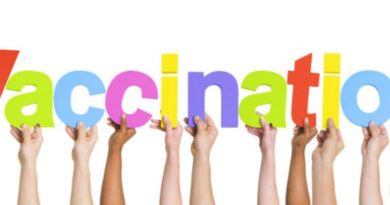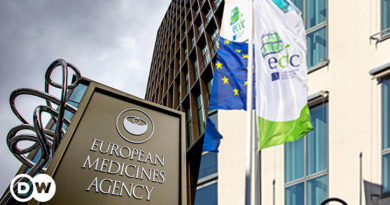
Vaccine hesitancy: public health emergency
Eradicating and tackling disease and protecting public health through vaccination is one of the most important achievements of modern medicine. Next year we will celebrate the 40th anniversary of the global eradication of smallpox, a disease which had been one of the world’s most feared diseases. Moreover, thanks to the national vaccination programmes Europe is free of polio since 2002. Despite successes like these, we have been seeing an unwelcome return of some of the vaccine-preventable diseases. Today, we finds ourselves on the verge of a global public health emergency.
Measles is one such example. Since a vaccine was introduced in the UK in 1968, 20 million cases and 4,500 deaths have been averted in the UK, according to Public Health England (PHE). The UK had successfully managed to achieve World Health Organization measles elimination status, but shockingly that status has now been lost.
This is a part of a global trend. In recent years we have been seeing record-breaking measles outbreaks across Europe, even though the disease is almost entirely preventable with just two vaccination doses. Over 82 500 people were infected in 2018 – 3 times higher than in 2017 and 15 times the number of people affected in 2016.
One of the main reasons behind this resurgence is a rising tide of vaccine scepticism. Europeans are not convinced anymore about the safety of vaccination and some think it is not necessary to vaccine as the diseases appear to be ‘gone’.
According to this year’s Eurobarometer, a third of unvaccinated Europeans do not see the need for vaccination.
As for the awareness, 48% of surveyed agreed with a false claim that vaccines can produce serious side-effects and more than one third of respondents falsely believed that vaccines can cause the disease against which they protect.
How did we get here? In recent years, social media has become a “breeding ground for mis- leading information and negative messaging around vaccination”. This is the conclusion reached by the UK’s Royal Society for Public Health. Thanks to platforms like Facebook false claims around the possible side effects of the vaccines spread further and faster than ever before, despite strong scientific evidence that those fears are false. These platforms could become even more influential as generations that have grown up with these platforms become parents.
The good news is that healthcare professionals still remain the most trusted source of vaccine information for parents and they play a vital role in making parents aware of the importance of childhood vaccinations. Unfortunately, public health budgets have been hit severely by the austerity measures in the last decade. As an example, the county of North-amptonshire in my constituency, local public health budgets have been cut by 15% between 2016/17 – 2018/19. Such decisions have long- lasting impact on access to health services and the health of local populations, specifically when it comes to disadvantaged and socially excluded groups.
Diseases do not recognise borders, that is why the EU needs to show leadership on this. Vaccination programmes might be a competence of national and local authorities, but they vary from country to country, creating a confused and incoherent picture at EU level.
The EU has the power to advocate for a comprehensive and harmonised approach to vaccination and to strengthen cooperation and coordination.
Changing the public perception of vaccination must be a priority and social media giants have a big role to play in clamping down on fake news and disinformation. They need to take responsibility and start promoting credible sources of information and verified, evidence-led and scientifically credible awareness campaigns.
It is also necessary to reverse the negative trend of the public health funding cuts enacted over the past decade. Resources need to be put behind empowering healthcare professionals, including midwives and school nurses, with funding, information and training in order to improve expertise and increase uptake in under-vaccinated communities.
WHO declared vaccine hesitancy is one of the main threats to global health.
We need to get all actors on board to tackle it decision and policy makers, healthcare professionals, organisations, communities, social media platforms, the media and citizens working together to provide comprehensive and accessible information.
Choosing not to vaccinate puts everyone at risk. It is the vulnerable who are put at most risk by falling vaccination rates newborn babies, elders, cancer-treated patients whose immune system is weakened, or those without a fully-working immune system.
This is a public health emergency, the EU’s response must treat it as such.




